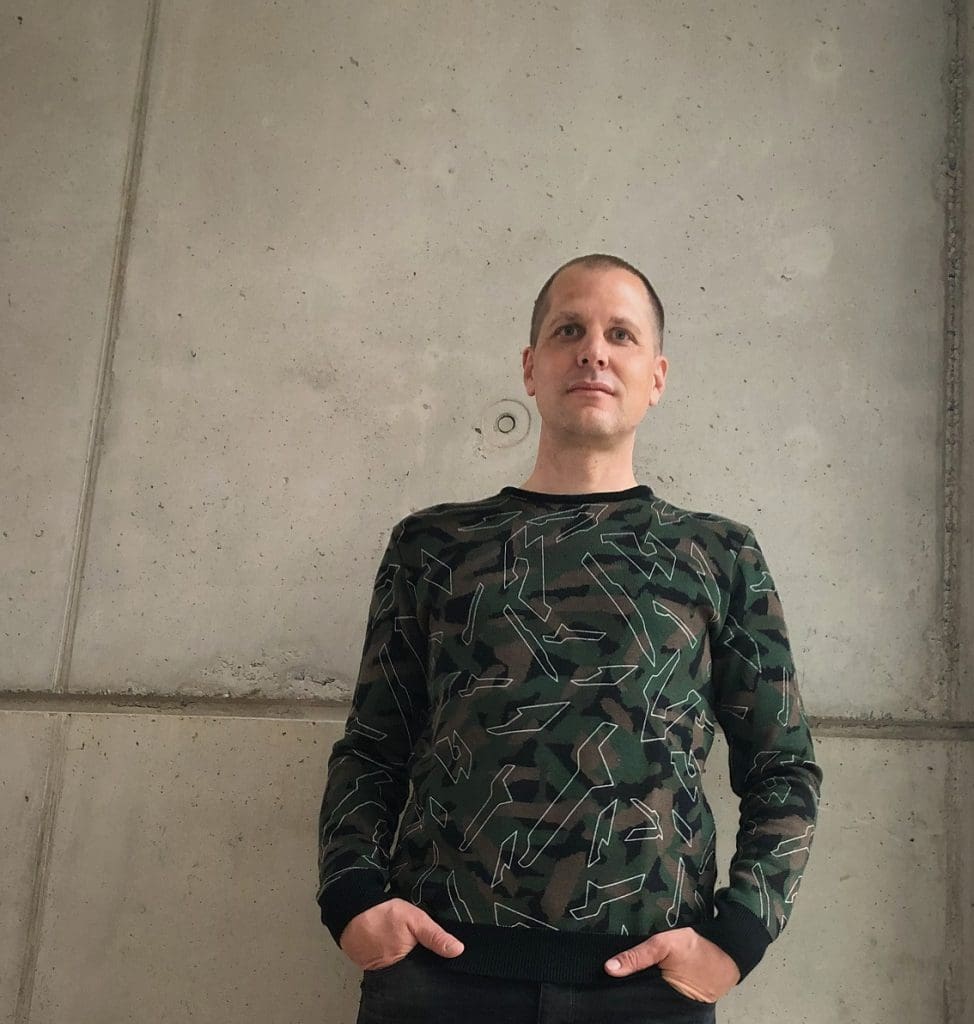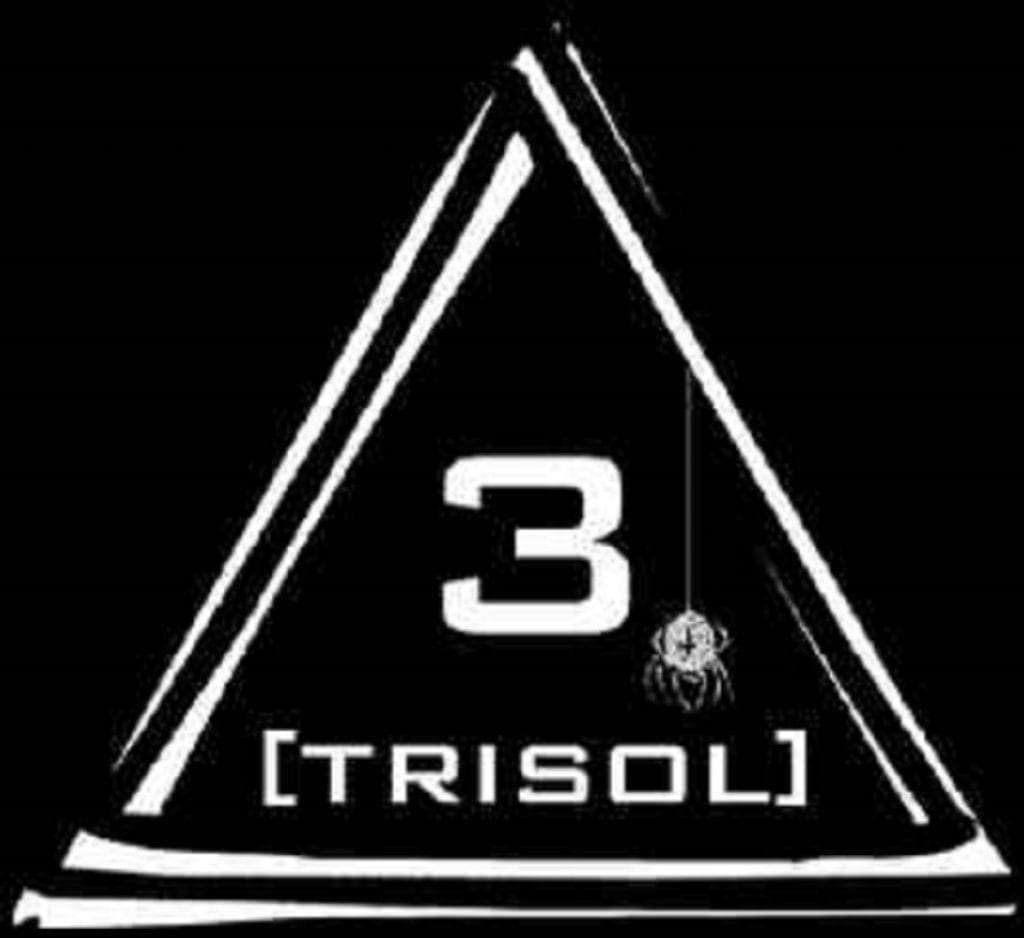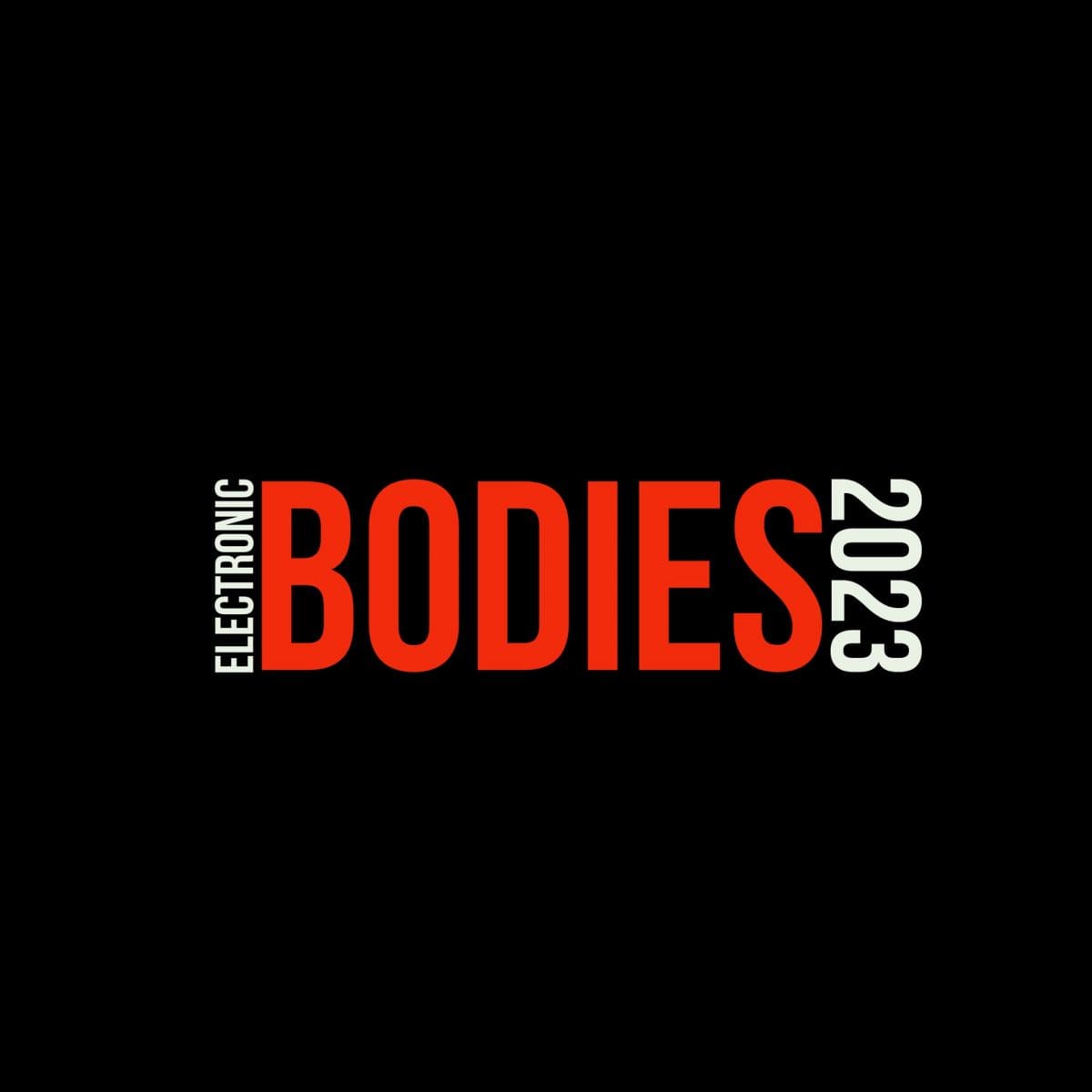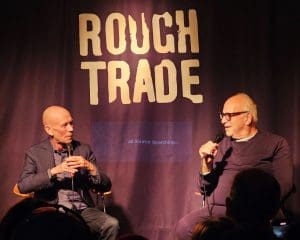Labels Interviews: File 5: Alex Storm / Trisol: ‘I’m Interested In Artists Who Want To Create Something New’


German label Trisol has been set up in 1997 by Alex Storm. He’s also running Apocalyptic Vision, which was his first label. Trisol is characterized by a true eclectic taste of music; from EBM to Dark-Electro to Industrial to Dark-Wave, Neo-Folk and related genres. Trisol is the home of artists such as Rome, Project Pitchfork, Die Form, Clan Of Xymox, Nachtmahr, Asp, L’âme Immortelle, Samsas Traum, Mantus, Scheuber, Persephone ao. Apocalyptic Vision is still active today releasing the work of Sopor Aeternus.
(Stéphane Froidcoeur / Courtesy by Inferno Sound Diaries)
Q: Was there a kind of ‘philosophy’ when you set up your label and did it evolve over the years? How would you define your label activities today?
Alex: To answer this question properly, I need to go back in time a little and begin before I founded Trisol. The first label I founded was Apocalyptic Vision, which I (unofficially) started in 1992, so five years before starting Trisol. In the early 90s, when lots of vinyl albums were being released on CD for the first time, I was waiting in vain for CD reissues of many of my favorite albums –albums by Clair Obscur, Esplendor Geométrico, Memorandum and others. And even back then, I was also a big Sopor Aeternus fan. So I contacted quite a number of labels to suggest they reissue various albums on CD, or that they sign Sopor Aeternus –but not a single label was interested. Completely unfathomable!
After months of investing my time and money into these activities, I thought: ‘Just do it yourself!’ In other words, Apocalyptic Vision was intended as being purely a label for reissuing some of my favorite albums by my favorite bands, as well as for Sopor Aeternus. That was of course naive, but luckily, I was able to pull it off.
It seemed I developed a good reputation with this label, and as a result I received more and more interesting enquiries from bands that I treasured, both personally and artistically (such as DIE FORM). Bands that unfortunately didn’t fit into the Apocalyptic Vision re-release concept. I therefore decided to set up a second label, which enabled me to sign precisely these types of bands.
Apart from those specific re-release intentions for Apocalyptic Vision, the philosophy behind both labels is to work with artists who pursue the ‘total work of art’ approach, and who literally live their art. Good music alone was never enough for me, even just as a fan of bands. What excites me is when artists strive for a synthesis of the arts, in order to then transcend art’s boundaries. This idea of striving for a total work of art still applies today. So nothing in my basic philosophy has changed over the last nearly 30 years.
Q: I can imagine you must have specific and explicit criteria to sign an artist/band. Can you give us more details about this aspect and how important is it for you to know the person(s) hiding behind the ‘artist(s)’?
Alex: As explained above, the important thing for me is the ‘total work of art’ approach. I therefore look for artists in whom I see this potential. What’s more, I’m not interested in copies of copies. Back in 1992, when I founded the label, there were countless Sisters Of Mercy clones about. Some of these were really good, but of course, some of them were really terrible. But even the very best of the clones didn’t interest me. I’m interested in artists who want to create something new, and who have this irrepressible drive; this special ‘spark’. And last but not least, the chemistry must also be right. I’m proud to run an independent label, and for me that means first and foremost that the human element must first be established before a contract is concluded, because goals and visions can only be achieved by working together.
Two examples of this ‘total work of art – individuality – partnership’ trinity are Asp Spreng (ASP) and Alexander Kaschte (Samsas Traum). At the time, I was ripped to pieces for these signings. Lots of colleagues, and above all the press, shook their heads. Today, these are two of my most successful artists, and without them ever having had to compromise their principles in any way. As well as their musical projects, both of them are meanwhile active as authors, owners of their own publishing imprints, A&R people and consultants. In short: they’re indefatigable all-rounders.
But because of digitalization, I also have bands on my roster for whom I only release a digital single here and there. In these cases, I don’t apply the above-mentioned selection criteria quite so strictly. Because of the nature of purely digital releases, this is OK, and things work on this premise.
When all’s said and done, working together should be enjoyable. But even though it’s not really the primary consideration for me: I also need to see a certain amount of commercial success. It may not fit in with romanticised conceptions, but even independent labels and their artists need to earn money. As a result of the major –or more precisely, dramatic –developments of recent years, labels need to unfortunately keep a closer eye on this aspect. If you don’t, you’re out of the picture more quickly than you think. There’s a fitting German saying that says you can’t just live on fresh air. Unfortunately, this is true!
Q: You are already active for numerous years now so you must have seen a lot of things changing and evolving; think about social media, streaming platforms, Youtube channels… but also economic crisis etc. What are the pros and cons of these changes/evolutions and in, which way did you had to adapt/change your strategy and activities?
Alex: Digitalization was and is the most radical upheaval of all. People even speak of it as being a new industrial revolution. The positive aspect of digitalization is the accompanying democratization of the music industry.
Today, we can no longer imagine how difficult –rather, hopeless –it was as a newly founded label back then to get a distribution deal. Especially with a distributor who was actually capable of being able to get CDs into the shops. The difficulties we faced back then, just to get an album reviewed in a music magazine, are barely imaginable! In those days, music magazines were the only medium in, which indies could make their releases known. And if that wasn’t enough: all these problems described here didn’t just apply to Germany, but to every country in the world. As a German label without the internet, and armed only with a telephone connection, how could you find out whether there were relevant magazines –and what they were called –in for example France? I can still vividly recall how, for my very first release, “In Out” (cat no AV 001 CD) by the French band Clair Obscur, how difficult it was to send the CDs over the border into this neighbor country (!) and to market it there. It was as easy as it would presumably be today to export Trisol albums to North Korea, hahahaaa!
Today, the entire world is only a mouse click away. Being able to distribute and market music no longer depends on the benevolence of just a few quasi-monopolists.
And as for the negative aspects –everybody knows what they are, so I don’t know if I still need to list them? Today it’s all about Individual songs and playlists. Whoever succeeds in getting onto popular playlists is guaranteed substantial listener figures. For example, most playlists are orientated towards the course of the day, spanning ‘Good morning!’ to ‘Beating afternoon fatigue’ and up to ‘Gently fall asleep’. The artist is no longer important. Everything is based on users’ habits instead. So it’s no longer surprising that the people listening to music are no longer called ‘fans’, but rather really are called ‘users’. But music is also a haptic experience. Apart from the cover artwork and booklet, this also includes the signs of wear that a record or CD in a fan’s possession for a long time displays. Streaming and downloads are soulless! This soulless consumption also has some quite different ramifications. In the past, you could offer a contract to ten bands that you believed in. Nine of these bands would however never make it, but there was always one band who would make a breakthrough. Earnings from this one band could then subsidize the others, which was vitally important for promoting newcomers and keeping the market dynamic. Today, this is no longer possible. Or on a related topic: protest culture and protest songs. Has anyone ever encountered Fridays for Future protest songs?


Of course, strategies need to be adapted. To explain all that, I’d need to write a reference book. I’ll try to illustrate this by means of an example: When I started, it was all about releasing albums on CD, because vinyl was dead. Furthermore, when realizing album projects, we had to take into consideration that the playing time was way over 60 minutes, because the capacity of a CD is greater than that of a vinyl record. And then, when I occasionally did release a vinyl edition, I usually received the pressing, including test pressings, within three weeks, because the vinyl presses were otherwise at a standstill. Today, when releasing albums, you predominantly have to think about the vinyl edition, and therefore a playing time of 45 minutes maximum. Ideally, this must also be easy to split across two sides of a record. But nowadays, a vinyl pressing means having to plan ahead for nearly six months. In short, virtually everything is diametrically opposed to how things were when I started.
Q: The ongoing pandemic has affected all artistic life and activities so what’s the true impact on your label activities and do you think it will also affect your long term objectives?
Alex: The pandemic’s effects on the work of the label can be split into two groups: bands that play live lots or tour, and bands who only occasionally play live, or not at all. For more popular bands, it’s vitally important that album releases are accompanied by a tour. This means that, without a tour, the releases planned for these bands also have to be postponed. But for bands whose releases aren’t supported by tours, the pandemic doesn’t affect release strategies in any way at all. However, some of my colleagues see this aspect differently.
But the effects on physical sales are downright epochal. Because bricks and mortar shops were closed –and to an extent still are –the pandemic’s effect on the decline of traditional offline shopping has been like that of an accelerant on a forest fire. Records and CDs are hardly ever bought in local shops, but rather sold via mail order.
Q: Do you think media (magazines, online platforms etc…) still have an impact and a role to play today? What’s your relationship with ‘journalists’ and how important is their work?
Alex: Ah, the good old days of print media… those days are long gone. Personally, I miss those times enormously, because back then I virtually devoured all the magazines: Glasnost, Zillo, Elegy, D-Side, Side-Line, New Life, Ritual, Black, Ghastly Magazine, Propaganda Magazine and Music From The Empty Quarter. The latter in particular made a lasting impression on my musical taste. In those days, if you read a good review by Zillo journalists Joe Asmodo or Dirk Hoffmann, you knew that you could buy the album in question. And you weren’t disappointed. Those were still the days of quality journalism.
Today, a lot of it is just meaningless crap. After you’ve read the reviews, you often still don’t even know what sort of music they’re writing about, and how the album might sound. The press hasn’t done itself any favors there. To an extent, they have themselves to blame for this irrelevance. Luckily, there are exceptions, and I’m glad that in Germany, we still have Orkus! as a print magazine.
So of course, I’m pleased to cooperate with journalists who turn out really great work, and I can still see a clear relevance, irrespective of whether in print or online media.
Q: What do you consider as your biggest accomplishment(s)? Do you have specific goals/dreams you want to achieve and how do you prepare and see the future of the label(s)? And what are your biggest regret(s)?
Alex: My biggest achievement is that, after nearly 30 years, I’m still running my two labels. My greatest dream is that I’ll be able to pursue this path for many more years to come. Ideally, literally until the end of my life. There are no special preparations in place for this –only my passion for music and a willingness to always be open to new developments, even if I may not always personally approve of them.
My greatest regret is probably the virtually archetypal A&R error: that artists sometimes slip through the net, and that you then regret this for the rest of your life.
Since you’re here …
… we have a small favour to ask. More people are reading Side-Line Magazine than ever but advertising revenues across the media are falling fast. Unlike many news organisations, we haven’t put up a paywall – we want to keep our journalism as open as we can - and we refuse to add annoying advertising. So you can see why we need to ask for your help.
Side-Line’s independent journalism takes a lot of time, money and hard work to produce. But we do it because we want to push the artists we like and who are equally fighting to survive.
If everyone who reads our reporting, who likes it, helps fund it, our future would be much more secure. For as little as 5 US$, you can support Side-Line Magazine – and it only takes a minute. Thank you.
The donations are safely powered by Paypal.











